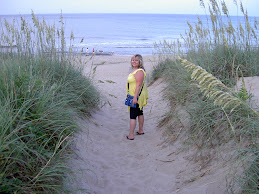
Tomorrow I take this year's students to the Woodlands Memorial Garden. It's a bit of an ordeal - carpooling, scheduling, signing liability waivers. But for me, it's one of the most important parts of their education. And mine.
The garden commemorates the hundreds of people who died at Woodlands and the thousands who lived there and are still living among us. Residents were buried on the grounds, each marked by a small concrete brick, engraved with their initial and last name and the year they died. That's it. In the 1970's, someone decided the stones no longer were needed and they were discarded. Some were used to build bbq pits and patios for the staff and homes off the property. Others were thrown into the ravine. As the institution closed, this came to light, and a handful of great people made it their business to collect the stones and create the Woodlands Memorial garden.
I love that place. Peaceful, lush, and beautiful. Those bricks now stand tall, reminding us of what happens when a certain segment of society is tossed aside, abused, marginalized, even "tolerated."
Left unchecked, these responses to differences leads to is a deadly forgetfulness that descends in our psyches. In Woodlands case, society's forgetting led to horrific acts of neglect and abuse, the severing of ties with family who were told by professionals to forget. One of the highlights of my life has been to participate in the creation of homes for several Woodlands residents, to witness firsthand not just the changes, but the miracles that connections can bring. But that is for another blog.
There is no "us" and "them." We cannot afford this as a society. Such thinking leads to the breakdown of families, relationships, whole societies. In some cases it has led to physical acts of abuse, torture, even death.
The garden silently and beautifully bears witness to this truth. Walking the Woodlands garden path is an act of worship, a sacrament of sorts for me. Those souls inspire me to stand tall in the midst of my own differences. They inspire me to model self-acceptance and the acceptance of others. My hope is that the students tomorrow recognize not just how important the work is that they will be doing as Special Education Assistants, but the critical bigger picture of full inclusion, full rights, full participation of all in society.




